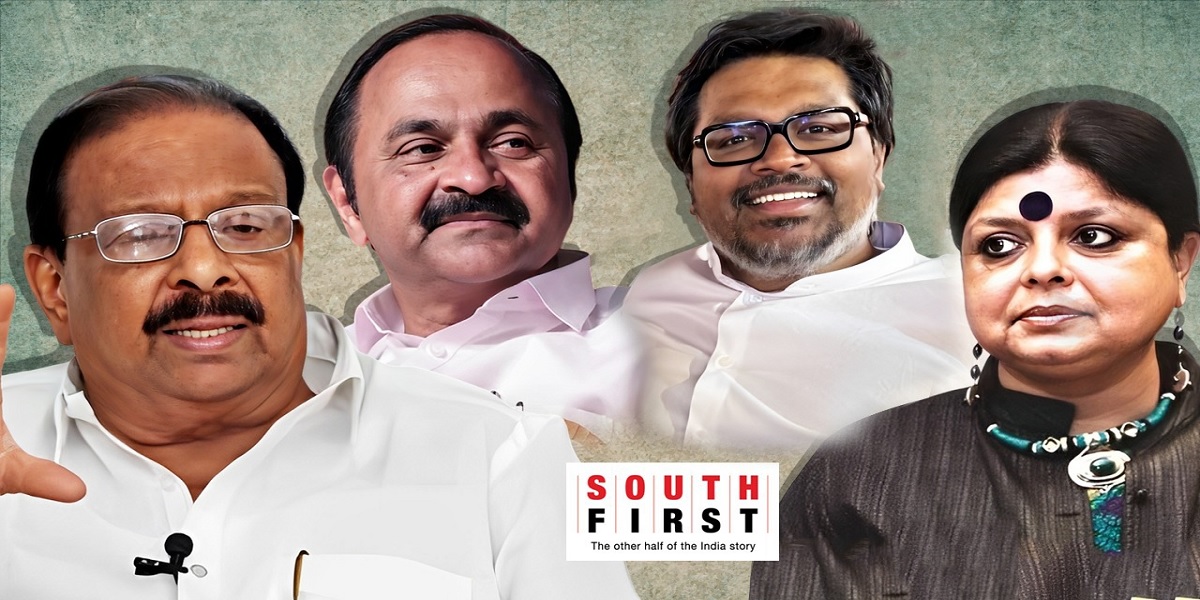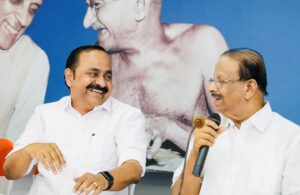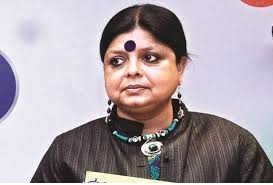Three critical developments are fuelling intense political discussions around Congress in Kerala: Opposition Leader VD Satheesan's "Plan 63," political strategist Sunil Kanugolu’s new roadmap, and the anticipated report from AICC general secretary Deepa Dasmunsi.
Published Jan 25, 2025 | 9:00 AM ⚊ Updated Jan 25, 2025 | 9:54 AM

Congress drawing up plans to reclaim lost glory in Kerala
The Congress in Kerala is on an ambitious mission to recapture its lost glory after the United Democratic Front (UDF) that it leads suffered two consecutive defeats in Assembly polls, a rarity in the southern state.
The 139-year-old party is now trying to revamp itself and revive its fortunes ahead of the upcoming elections to the local self-government bodies, and the Assembly polls in 2026.
Hectic parleys are on in the Kerala Pradesh Congress Committee (KPCC), with political strategist Sunil Kanugolu presenting a list of probable candidates to succeed the party’s state chief, and the AICC general secretary in charge of Kerala, Deepa Dasmunsi, holding one-on-one meetings with state-level leaders on the way forward.
Against this backdrop, three critical developments are fuelling political discussions in Kerala: Opposition Leader VD Satheesan’s ambitious “Plan 63,” Kanugolu’s roadmap, and an anticipated report from Dasmunsi.
While the party boasts of having promising young leaders in both Assembly and Parliament, seasoned political analysts emphasise the indispensability of the old guard in drafting and executing electoral strategies.
Beating the ruling LDF in the electoral arena is no easy task, especially since it continues to maintain a strong grassroots-level presence despite growing anti-incumbency sentiments from various sections, including the youth.
Adding to the Congress’s challenges are internal conflicts, which insiders claim as “significant” despite the organisation’s efforts to conceal them through joint press conferences and public shows of unity. These internal rifts, akin to an iceberg, pose a formidable threat to the Congress’s revival.
Every plan, move, and resolution in the coming months will be crucial in determining the party’s fate in Kerala.
“Plan 63” is Satheesan’s roadmap for brightening the party’s prospects in the Assembly polls.

VD Satheesan (L) and K Sudhakaran.
The Congress had won only 21 seats in the 2021 Assembly elections, and Satheesan has formulated a plan to win an additional 42 seats in 2026, which would bring the Congress tally — excluding that of allies — to 63 seats.
The plan includes special strategies to reclaim Congress strongholds and lost Assembly seats.
The major criticism against “Plan 63” is over Satheesan unilaterally drawing up the scheme without discussing it with party members, including senior leaders.
He reportedly conducted a secret survey, which identified 63 Assembly seats that the Congress could win. However, he excluded constituencies like Nemom and Kazhakkoottam, citing low winning probabilities.
The previous Political Affairs Committee (PAC) meeting questioned Satheesan’s authority in carrying out the survey. He has yet to provide a clear answer.
His perceived autocratic nature has drawn criticism, with some alleging that his ultimate aim is to secure the chief minister’s seat. Sources suggest that the party high command is also unhappy with the secret survey.
The rift between Satheesan and senior leaders like K Sudhakaran, K Muraleedharan, and Ramesh Chennithala is seen as just the tip of the iceberg. Despite these challenges, Satheesan’s performance in the Assembly has earned him recognition.
However, senior leaders question whether he can manage a statewide Assembly election campaign. They argue that he is not a crowd-puller and lacks a grassroots connection.
Amid intraparty fissures, the Congress needs a strong strategy to regain its strength in the upcoming local body and Assembly elections.
In the 2021 Assembly elections, the UDF expected to win 83 seats but only secured 41 out of the total 140 seats, a decline of six seats. Congress, the senior-most member of the UDF, won just 21 out of the 93 seats it contested, making it the weakest player in the alliance.
The party suffered major losses in the northern Kerala region, Malabar. Historically, the performance of Congress in northern Kerala has been fluctuating.
In 2001, the Malabar region had 53 constituencies, and Congress won 15 seats. By 2011, when the number of constituencies increased to 60, Congress’s performance dropped, winning only 11 seats.
The 2016 elections saw further setbacks, with the Congress winning only six constituencies, Peravoor, Irikkur, Bathery, Wandoor, Palakkad, and Thrithala.
The party contested 31 constituencies but managed to win only 23. It lost Thrithala and failed to secure any seats in Kasaragod or Kozhikode districts, where they had not won since 1987 and 2001, respectively.
The IUML, a Congress ally, did not improve its position. It won 15 seats, matching its 2016 tally. Overall, the UDF’s performance in Malabar was poor as it secured just 21 seats.
Along with this, the exit of the Kerala Congress (Mani), internal groups, and factionalism, as well as the excessive control exerted by the high command contributed to the Congress’s underperformance.
KPCC president K Sudhakaran recently addressed the ongoing speculation regarding leadership changes. He made it clear that he had no personal ambition to retain his position or seek the chief minister’s role.

File photo of political strategist Sunil Kanugolu. (Supplied)
Sudhakaran further announced his decision not to contest the upcoming Assembly elections, emphasising that his priority would be on the party’s welfare over personal aspirations. His stance has changed since.
Despite Sudhakaran’s earlier offer to step down, his leadership has garnered continued support from prominent figures like Ramesh Chennithala, who reaffirmed his confidence in his ability to lead the party. With this support, Sudhakaran now doesn’t not want to give up on his post.
Speculation surrounding a leadership change in the KPCC intensified after Kanugolu proposed a fresh roadmap for the party’s future. He recommended six prominent names as potential candidates to succeed Sudhakaran as the KPCC president.
He suggested MPs Adoor Prakash, Kodikkunnil Suresh, Anto Antony, Benny Behenan, and MLAs Roji M John and Sunny Joseph.
As the Congress party navigates its leadership transition, it is evident that the high command has not named a successor as of now, leaving the decision to the state unit. With Kanugolu’s suggestions in play, the coming months will be critical in shaping the future direction of the KPCC and its leadership.
Kanagolu’s list of possible KPCC presidential candidates notwithstanding, Dasmunsi will submit the final recommendations to the high command. Currently engaged in extensive discussions with Congress leaders, she had met with key figures in the second rung and DCC office bearers.

Deepa Dasmunsi
Her primary focus is identifying a suitable candidate for leadership after consultations. Her insights will be crucial for the high command’s decision on effecting any changes to the KPCC leadership.
In addition to selecting a new face for KPCC, Dasmunsi is under significant pressure to broker a compromise between competing factions within the party. Her role has become pivotal in uniting the party amidst internal strife and disagreements, according to several party leaders.
Sudhakaran is facing a crisis from multiple perspectives. His “immature” statements and the growing rift with the opposition leader are major issues. His comments praising the RSS and BJP have sparked criticism from local leaders and party workers.
Additionally, his negative remarks about Nehru miffed both Congress and the Muslim League, leading to the central leadership considering Sudhakaran’s views as problematic.
Dasmunsi has refrained from commenting on potential leadership changes within the KPCC, and the much-debated “Plan 63”. She clarified that such matters were not on the agenda during the PAC meeting.
Even as Congress puts its plans into place, Kerala Pradesh Congress Committee President, K Sudhakaran, has expressed his dissatisfaction with the ongoing discussions about a leadership change within the party.
According to party sources, Sudhakaran conveyed his concerns to AICC General Secretary K C Venugopal, asserting that if these talks are being linked to his health concerns, then he is ready to resign from his position as an MP as well.
Furthermore, he plans to formally communicate his discontent to Rahul Gandhi through a letter, while taking credit for the party’s recent Lok Sabha victory under his leadership.
K C Venugopal is expected to meet Sudhakaran tomorrow in an attempt to reach a compromise before the launch of the Malayora Samara Yatra.
This protest march, covering 60 assembly constituencies, will be led by V D Satheesan and marks his first significant political initiative as the Opposition Leader.
(Edited by Majnu Babu).
